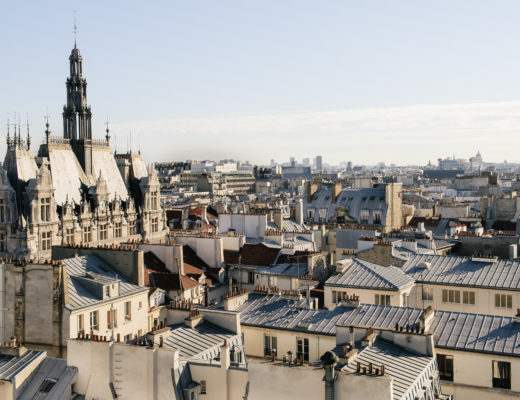Growing up in Pennsylvania and living in France are quite similar in certain ways. What immediately comes to mind is the fact that both are relatively free of weather risk – earthquakes are unheard of, tornadoes are rare (though possible in rural PA), hurricanes pass over us leaving in their wake only gray skies and torrential rain, and tsunamis are… well, the word doesn’t really make it into our vocabulary very often. I grew up with occasional blizzards and minor flooding in the Philadelphia region and am exposed to even less in Paris.
I may bemoan the sun’s absence for most of the year but I have thus far been fortunate enough to be spared from the realities of natural disasters. Lucky as I may be, I nonetheless feel the terror and sadness each time the media rebroadcasts footage from the earthquakes in Haiti and Japan followed by the tsunami, the monsoon in Pakistan that left 14 million lives changed forever, and, most recently, the tornadoes (all 165 of them in 24 hours) that ripped through the American South. Disasters I used to think, as a kid, were merely Hollywood creations for the big screen are in fact the reality for so many around the world.
And so I give. I donate what I can afford in the hopes that my small contribution will become part of a larger initiative to imrpove the lives of those affected; so the powerless may return to some level of normalcy. But through this, I’ve also realized that giving implies far more than financial donations.
My friend Laura is the Director of Communication and Social Media for Jolkona, a Seattle-based non-profit that connects individuals with global philanthropic opportunities and provides proof of each donation’s impact. She told me about World Give Day (today!) and asked if I’d like to share my thoughts in response to the prompt “Small scale donors are the backbone of philanthropy”.
As I said, I can’t afford to give as much, financially, as I would like in order to help those in need. But I do try to give in the ways that I can – offering some fruit or bread to the homeless in Paris (though it is sometimes refused), donating clothes and unwanted possessions, volunteering for an organization (as I continue to do for AINA), or donating my time and skills to others. But what I think everyone should keep in mind is that giving applies to your own local network as well- friends and family, coworkers and strangers.
It’s been said time and time again that it is the smallest gestures that can often make the biggest difference but I think many of us believe that if we can’t donate a significant amount of money, donating is useless. The other misconception is that giving must be for starving children or war-ravaged citizens of a distant nation. It CAN, and often is, but I think to get started the best idea is to find ways to give on a daily basis to those around you and then expand your scope – reach for those who are further away, those you might never meet but whose lives you can impact with $1 or even 1 pair of shoes.
I’m not as altruistic as I would like to be but I do see that little actions create a ripple effect. So whether it’s for displaced families in Africa, rebuilding homes in Japan or simply assisting your neighbor carry grocery bags, get to giving. Go beyond May 4th’s World Give Day and make it a daily commitment to helping others. Even that irritable old man on your daily commute to work might just be waiting for someone to reach out.
This post is part of a blog series inspired by World Give Day and hosted by GiveForward and Jolkona. To find other posts in this series please visit www.worldgiveday.com or follow the hashtag #giveday.











